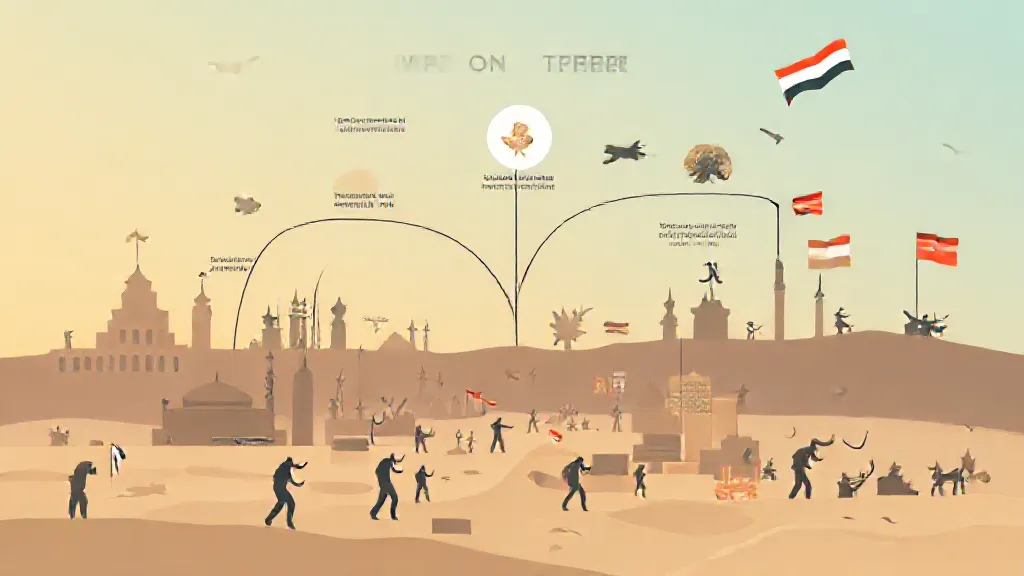The War on Terror, initiated after the September 11, 2001 attacks, represents one of the most significant military and political campaigns in modern history. Understanding its causes requires a deep dive into a complex web of historical, political, and ideological factors that have shaped global terrorism and the responses to it.
Historical Context of Global Terrorism
To understand the War on Terror, we must first explore the historical context of terrorism itself.
Terrorism is not a new phenomenon; it has existed in various forms throughout history. However, the late 20th century saw a rise in politically motivated violence, particularly in the Middle East. The Iranian Revolution of 1979, for instance, was a pivotal moment that transformed the region's political landscape, leading to the establishment of a theocratic regime that opposed Western influence.
This period also marked the rise of militant groups such as Hezbollah and Hamas, which employed terrorism as a means to achieve political ends.
The Role of U.S.
Foreign Policy
U.S. foreign policy in the Middle East has been a significant factor contributing to the War on Terror.
The American support for authoritarian regimes, such as those in Saudi Arabia and Egypt, and the military interventions in Iraq and Afghanistan, have fueled resentment among various groups. The Gulf War in 1991, followed by the sanctions imposed on Iraq, created a perception of American imperialism and aggression, leading to increased radicalization among Muslims. Osama bin Laden, the founder of al-Qaeda, famously cited the presence of U.
S. troops in Saudi Arabia as a primary grievance.
Ideological Underpinnings of Extremism
The ideological roots of the War on Terror are deeply intertwined with radical interpretations of Islam.
Groups like al-Qaeda and ISIS have exploited religious texts to justify their violent actions, framing their struggle as a defense of Islam against Western aggression. This radicalization is often fueled by socio-economic factors, including poverty, lack of education, and political disenfranchisement. The narrative of a global jihad, or holy war, has been a powerful motivator for individuals seeking purpose and identity in a turbulent world.
The Impact of Globalization
Globalization has played a dual role in the rise of terrorism. On one hand, it has facilitated the spread of ideas and ideologies, allowing extremist narratives to reach a broader audience through the internet and social media. On the other hand, globalization has also led to increased economic disparities and cultural clashes, particularly in regions where traditional values are threatened by modern influences.
The resulting alienation can drive individuals towards extremist groups that promise a return to a perceived purer form of identity.
The Aftermath of 9/11 and the Rise of Counterterrorism
The immediate aftermath of the September 11 attacks saw a significant shift in U.S.
foreign policy, with the declaration of the War on Terror. This campaign not only involved military action but also a comprehensive approach to counterterrorism, including intelligence sharing, international cooperation, and efforts to combat radicalization. However, the effectiveness of these measures has been debated, as new extremist groups have emerged, and the cycle of violence continues.
The Role of Media in Shaping Perceptions
Media plays a crucial role in shaping public perceptions of terrorism and the War on Terror. The portrayal of Muslim communities and the emphasis on violent extremism can lead to stigmatization and discrimination, further alienating individuals who may feel marginalized. Additionally, sensationalist coverage can contribute to a fear-driven response, influencing political decisions and public opinion in favor of aggressive counterterrorism measures.
The Complexity of Terrorism as a Phenomenon
Understanding the causes of the War on Terror requires recognizing that terrorism is a multifaceted phenomenon. It cannot be attributed to a single cause or group. Instead, it is the result of a complex interplay of historical grievances, political dynamics, ideological motivations, and socio-economic conditions.
This complexity necessitates a nuanced approach to counterterrorism that addresses the root causes rather than merely responding to symptoms.
Future Implications and the Path Forward
As we look to the future, it is essential to reflect on the lessons learned from the War on Terror. A comprehensive strategy that includes diplomatic efforts, economic development, and education is crucial in addressing the underlying issues that contribute to radicalization.
Building bridges between communities, fostering dialogue, and promoting understanding can help mitigate the factors that lead individuals to embrace extremist ideologies.
In conclusion, the causes of the War on Terror are deeply rooted in a myriad of historical, political, and ideological factors. By understanding these complexities, we can better navigate the challenges posed by terrorism and work towards a more peaceful and just world.
